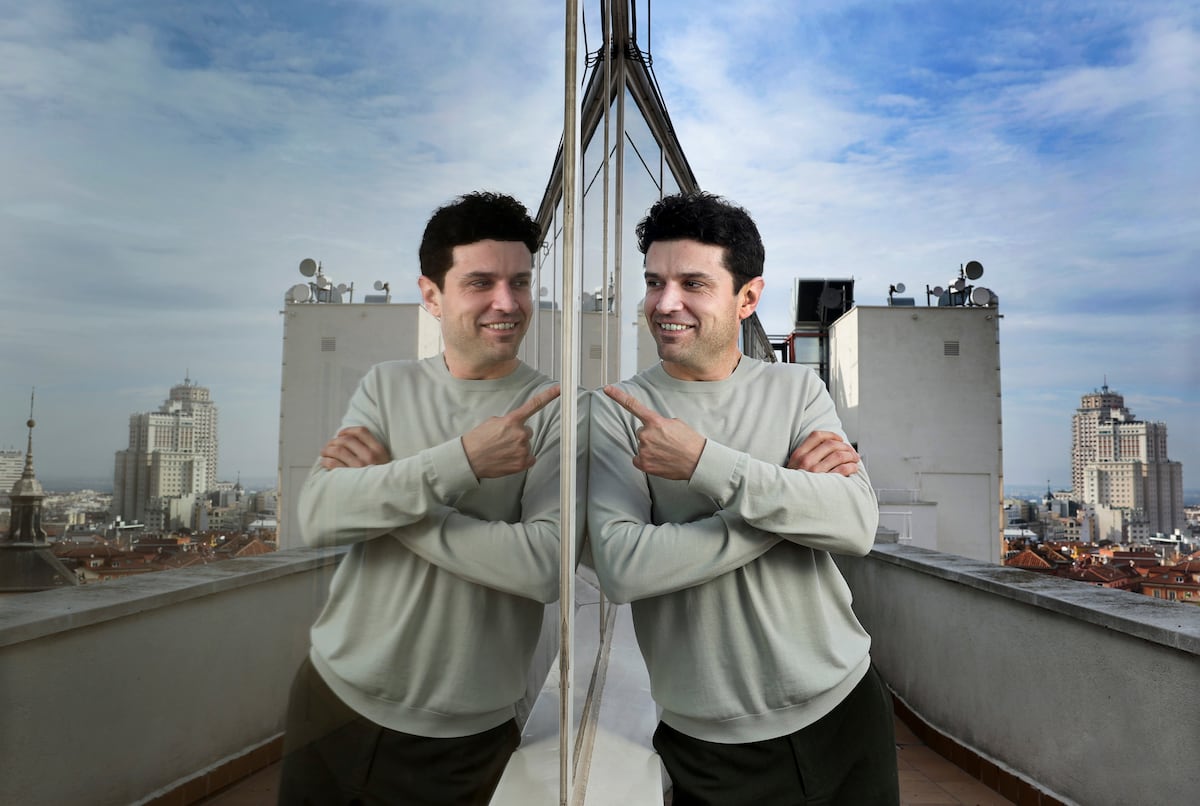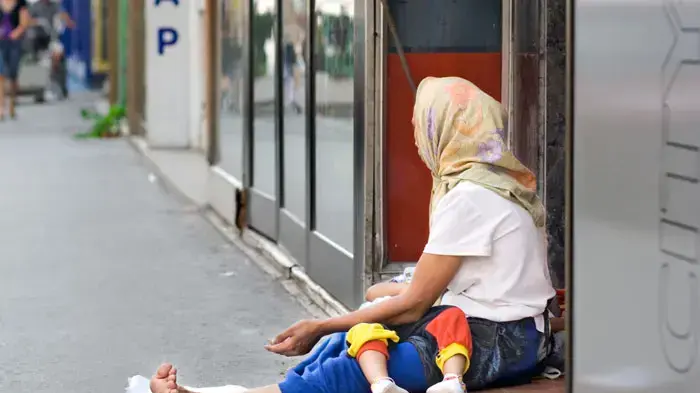Magaly opened her eyes and the "sir" was slapping her face to revive her and make her hear the umpteenth threat very clearly: "Five more minutes and you won't count it," he mocked.
A few seconds before she warned him that it was her last day of life, she put a key against her neck and the woman fell unconscious.
"The gentleman that".
This is how he calls his ex-partner, with whom he has two children, the nine-year-old and the boy, who will soon be two.
"I think they are with my in-laws."
She has been incommunicado for a month, in a shelter for battered women whose lives are in danger.
In the sunny house with a garden and children's games live eight women who saw her death very close to her.
They will spend three months detoxifying from a relationship that they are now beginning to understand.
“Attachment is not love”, they repeat.
And still with traces of guilt, they wonder:
Sexist violence kills 11 women a day in Mexico, on average.
But there are more who one day felt "a push, later a slap, then a punch, in the end it was already beatings."
“You see all those femicides on TV and you think that your time will also come, that you will not control your emotions, that you will end up doing it.
I don't need him to leave me covered in blood to see that this isn't right”, Carla, 28, said to herself one day, and took to the street with what she was wearing.
She sought help, but it was getting dark and she feared that she would run her out.
She was finally rescued at the Women's Institute and taken to the shelter in the State of Morelos, where she entered of her own free will.
She has already spent two months and the teachings she received from her are noticeable.
The National Shelter Network is one of the strongest institutions among those that shelter victims of abuse in Mexico, but in recent months it has been involved in a bureaucratic entanglement that has prevented public revenues from reaching them with which they take out forward your programs.
The budget program passed from one secretariat to another.
As much as they demanded it, the money did not come.
In downtown Morelos, the nurses, the managers, the driver, the cook, the cleaners.
All, from the first to the last, have been six months without receiving payment.
And also the suppliers, the one that supplies the chicken, the diapers or the gasoline.
And all of them, from the last to the first, have made a display of solidarity to hold firm in their posts.
“This month they have released the budget, but they won't let us pay it all at once, we have to pay it little by little,
for regulatory issues.
At least we are now certain that the money is there,” says Jonathan Villalba, the center's director.
Empty shelves in the women's shelter grocery store.
Nayeli Cruz
Certainty is still little for Wendy Figueroa, the director of the National Shelter Network, aware that there are still centers that have not yet received their resources, including "most of the government ones."
“We still do not know clearly how the budget should be exercised, the guidelines have been delayed, and what is more important: many workers have requested loans and now their salary will be integrated, but who pays the interest on those loans?
They are going to lose money.
Look, I warned when the Shelter program was passed from the Ministry of Welfare to the Ministry of the Interior (Conavim) that the processes be taken care of, that there were risks in that operation, but care has not been taken and human rights have been violated " says Figueroa.
The refuge is not a place to protect yourself for three months, but rather the space where you can learn to protect yourself for life.
These toxic relationships are treated in a similar way to drug addictions and the women relapse, but they are there again to accommodate them, as long as it takes.
Up to six times she returned with her partner Magaly, as soon as he "sweetened her ear".
And many others fled from the blows.
His story, from the age of 19 to 29 that he is now, next to that man, is like a manual of what usually happens: “From boyfriends they already manipulate you, they separate you from your friends, from your family” .
The spiral of violence gathers force like a slingshot in the wind, faster, stronger, more lethal.
When they hardly leave home they accuse them of being unfaithful and whores.
“But if he never went out”, they complain on the air.
In a country where relationships are forged at a very early age, "when you don't think maturely", admits Carla, the children are the factor that decides everything: mistreatment is endured for them, "so as not to separate them from their father" , and he stops putting up with them too, "so they don't grow up seeing so much violence."
Pregnancies are the spider web where many of these women get trapped before they even finish high school.
They threaten them with their children, and many, like Magaly or Carla, have to leave them temporarily to rebuild their interned lives.
There will be time to recover them with their heads and bodies full of strength.
During the morning, the psychologists deal with a basic learning: that life is not only violence, that this is not normal, but rather the opposite.
They have to learn it when they have already seen the wolf's teeth.
How was Carla going to realize that her situation was delicate, extreme, if she saw her father hit her mother and her uncle hit her grandmother?
“I grew up with that, I saw it as normal.
My father tried to kill my mother and me one day when I was little, the car rolled several times.
Carla still had her grandmother's affection and she returned to her father's house when things went wrong with her partner.
“But there it was the same, violence.
When I couldn't stand it at my father's house, I would go back to mine."
And so she was like a pin pon ball for years.
Her father has sued her for family violence and has taken her children from her,
but expect to come out in a month and resume everything archived.
The shelter is giving him legal advice.
"Now I know I can, yes I can, I can do it," he tells himself.
Carla does chores in the shelter's dining room. Nayeli Cruz
Magaly was told by her mother-in-law: "That's the man you chose, you'll have to put up with him."
A drug addict whom the eldest son has idealized.
Magaly dies of fear just thinking about it.
But even her mother-in-law and her sister-in-law saw that night that the matter was serious and helped the woman escape until she was admitted to the shelter.
She came out with just a backpack.
In the center they have everything: clothes, shoes, hygiene products, everything you need.
From that they receive many private donations and also from companies: washing machines, appliances.
“But one thing we need is cell phones, smartphones, because during the pandemic children had to follow classes online and that was essential.
But they think that the cell phones are for me and they are reluctant to donate them”, the director of the center laughs.
Villalba is talking about transition houses,
In the previous boarding school there are no mobile phones, they pose a risk that the center will be located and that the women will relapse into their toxic communications.
In a locker they leave the few belongings with which they arrived and keep the key.
The management in turn has the key to the room.
Two wills are needed to open the past.
But they are not in a prison, they can decide what they want.
"This sacrifice is worth it, although it hurts not to be with my children," Magaly cries over impeccable makeup to receive visitors.
The night he disappeared into the lives of others, he decided that he would enter without a trace.
But her mother asked “the man” where Magaly was and he told her that he didn't know anything about her.
The woman did not take long to put an alert in the Prosecutor's Office so that they would look for her as missing.
Through third parties they were able to inform the woman that her daughter was under her care.
Everything in order, then.
Thousands of mothers search for their daughters in Mexico and beg their sons-in-law to tell them about her whereabouts.
Or they search under the ground with their nails and shovels.
Magaly, in one of the shelter rooms. Nayeli Cruz
The Morelos refuge happens to be a nursery.
That is what the neighbors and many officials think.
Hardly anyone knows what it is or where that site is.
Only those strictly necessary.
Many victims are of policemen, bureaucrats, politicians.
And those who work in these centers sign confidentiality clauses.
The stealth must be extreme, it supposes a narrow line between life and death.
“I don't know the causes, the increase in poverty after the pandemic may be one, but not the only one.
The truth is that we have more and more requests to enter the shelter, an average of two per week, ”says the director behind his mask.
And resources are scarce.
But you just have to chat for a while with Magaly, who has been hospitalized for a month, and with Carla, who has been hospitalized for two, to clearly observe how they are empowering themselves, discovering their possibilities, valuing themselves, designing a new life.
They arrive with broken wings and are taught to fly away.
“Here I have resumed my studies online, I finished high school and I am going to high school.
I want to continue, because my psychologist says that I am good for this, for Psychology, she sees how I dialogue with my colleagues, how I listen to them.
Before, I didn't want to study because I got stuck and I preferred to leave it to have a feeling of failure”, says the young woman.
But what she really wants to be is a police officer, like her father, but also like her mother, who has money, "has houses and a car."
"In the police, I can also continue studying and have social security for my children."
That is one of the reasons that swells the list of police officers in Mexico, despite the risk they run.
An average police officer dies every day.
Bullets ring out everywhere and for whatever reason.
That is one of the reasons that swells the list of police officers in Mexico, despite the risk they run.
An average police officer dies every day.
Bullets ring out everywhere and for whatever reason.
That is one of the reasons that swells the list of police officers in Mexico, despite the risk they run.
An average police officer dies every day.
Bullets ring out everywhere and for whatever reason.
Carla's mother looked for her daughter when she was 22 years old.
Her father separated them when they were little and the woman rebuilt her life with another partner.
“I heard that she had a brother and wanted to meet him.
And I have three!” This woman, of an unmitigated beauty, is moved.
When she leaves the shelter she will look for her mother, who has already promised her the help she needs.
Sewing workshop inside the refuge. Nayeli Cruz
Means.
That is what these women need who one day stopped working and locked themselves up at home to flee from violence.
In the shelters they find almost everything.
“But the guidelines are strict.
Before, the specifications that we filled out had an etcetera and there we requested certain things.
Not now, now they include hair dye, but not a nail clipper, and it turns out that it is exactly what we need”, says Villalba.
In the tangled bureaucracy to grant the budgets, they do not fully understand the complexity of these situations.
“Many believe that by arresting the aggressor and putting him in jail everything is done;
or that if the women return with him, well, it's their fault.
It is not like this.
We have had the case of mistreated foreigners who need to regularize their situation to work and ask us for 12.
000 pesos for the procedures, when the law establishes that the victims enter through another door.
Where are we going to get that money from?” complains the director.
In the Shelter, the oldest of the women is 32 years old and the youngest, 16. A whole life ahead if someone manages to straighten their paths.
It's only three months of almost total isolation to discover themselves, and to repeat day after day that they are worth it, that they can.
What do they want.
subscribe here
to the
newsletter
of EL PAÍS México and receive all the informative keys of the current affairs of this country




/cloudfront-eu-central-1.images.arcpublishing.com/prisa/VFKX75CUOZDNRJYGUUBOILMNHY.jpg)


/cloudfront-eu-central-1.images.arcpublishing.com/prisa/5H57QGMKUNAEBJHEN3KWTKLZNI.jpg)

